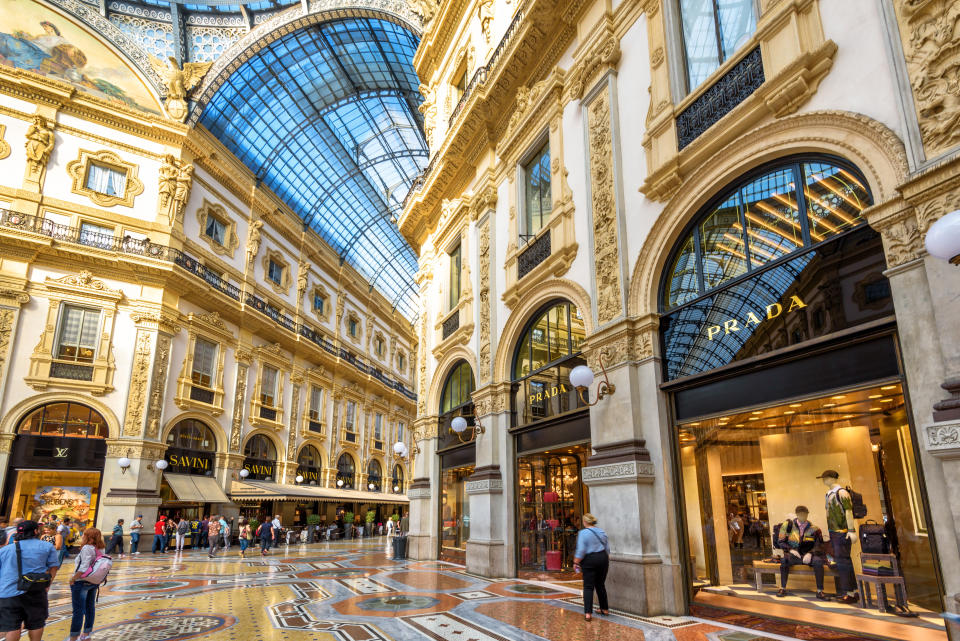Coronavirus: How the luxury industry is reinventing itself

By Andy J. Yap, Lewis Lim and Charlene Y. Chen
SINGAPORE — As companies try to ride out the severe impact of the COVID-19 pandemic, certain industries are more badly affected than others. . In particular, the luxury sector is likely to take one of the worst hits.
Sales for this year’s spring season are 70 per cent than last year’s. Swiss watch industry exports are expected to decline by 25 per cent this year, the biggest drop in half a century. The future of fine dining is also far from certain.
The problem of the luxury industry is three-fold. First, consumers who feel control-deprived tend to buy more functional products than hedonic ones, as it helps them regain a sense of certainty in their lives. As such, consumer demand for luxury goods and services tends to fall to a greater extent compared to that for functional ones in times of crisis. Discretionary goods and services have been among the worst-performing asset classes since the outbreak of Covid-19.
Second, the luxury industry is traditionally reliant on tourism and high-touch selling modes in-store. Hence, many brands are behind the times in terms of digital marketing. They need to up their game in the areas of online assortment and user experience.
Third, as consumers shun unnecessary spending, luxury brands need to stay connected to their various stakeholders. Beyond their exclusive customer base, they must work harder to gain or maintain the trust of their partners and the public.
Here are our three recommendations for luxury brands to thrive in these challenging times, based on our fieldwork and interviews with industry leaders.
1. Keep customer relationships warm and strong
Luxury brands need to somehow re-create the highly personalised nature of the in-store experience. With the reduction of retail traffic and cancellation of events, they must find ways to stay in touch with customers and keep them excited about the brand.
We are not talking about mass corporate emails and livestream events, but about mobilising frontline salespeople to nurture the best customers. In some cases, even C-suite leaders could be involved in this individualised effort. François-Henry Bennahmias, CEO of Audemars Piguet, notes: “This is the best time for us to go back to our address book and re-connect with many of our loyal clients. The human touch is what makes our brand special during these challenging times.”
At the order fulfilment stage, brands must find ways to make the delivery experience extra special, says Alvin Soon, President, Breitling Asia. “When we launched the Breitling Navitimer Swiss Air Boeing 777 limited edition a few years ago, the watch was available only as an inflight purchase and the Swiss Air pilot would come out to the cabin to hand the watch to the passenger who had ordered it,” recounted Soon.
Of course, it may not be possible or practical to provide such a unique experience for every purchase. Short of having a big fanfare, even a simple text to say “hello and take care” by the sales personnel or a humble video message by the brand CEO could help keep the customer-brand relationship warm and human.
2. Support both upstream and downstream channel partners
While letting go of suppliers or terminating dealership contracts may seem an easy way out in response to lower demand, luxury brands must earn the respect of their channel partners, both upstream and downstream. They should build trust by treating them as an extended part of the brand’s family.
Indeed, brands must be prepared for market recovery and keep a long-term view, combining it with crisis communication that shows empathy and emphasises that “we are in this together”. As Matthieu Dupont, President, Montblanc South East Asia & Oceania, told us: “The safety of our employees and partners is the utmost priority. We need to be flexible and adaptive to all the changes Covid will bring.”
Brands should also manage potential channel conflicts. For instance, differential pricing and discounts across channels may result in cannibalisation. In exchange for their cooperation, brand owners can display empathy by relaxing terms concerning the key performance indicators typically found in distributorship contracts. German automaker Porsche, for example, is guaranteeing payouts, extending finance and easing up on dealer performance objectives during this turbulent period.
3. Engage the entire public, not just affluent consumers
Luxury brands are supposed to be great and people expect great brands to lead during a human crisis. With many big firms contributing to the fight against coronavirus, luxury companies face high expectations from the public.
The top management of Italian luxury menswear group Zegna donated 3 million euros to support Italy’s health care system. The firm also manufactures face masks and personal protective gear for medical staff.
Swiss luxury watch brand Breitling is another example. Along with the brand’s celebrity ambassadors, the CEO posted a video message on Weibo, cheering on frontline medical workers and encouraging people in lockdown.
Publicity about these efforts need to strike the right balance to avoid appearing nonchalant about the coronavirus or being seen as attempting to cash in from it. These messages should thus exclude any form of commercial content. For example, the hand sanitisers that LVMH produced for French hospitals come in plain packaging.
Beyond the tangible goods and offerings luxury brands provide, people seek authentic values that they can connect with emotionally. For too long, luxury brands have only stood for excesses and ostentation; it is time they truly inspire a whole generation and stand for something great.
The story was updated since it first appeared on Insead Knowledge.
Andy J. Yap, is Assistant Professor of Organisational Behaviour, INSEAD and Academic Director, Centre for Organisational Research; Lewis Lim is an Associate Professor of Marketing Practice and Charlene Y. Chen, is Assistant Professor of Marketing. Both are from Nanyang Business School.


